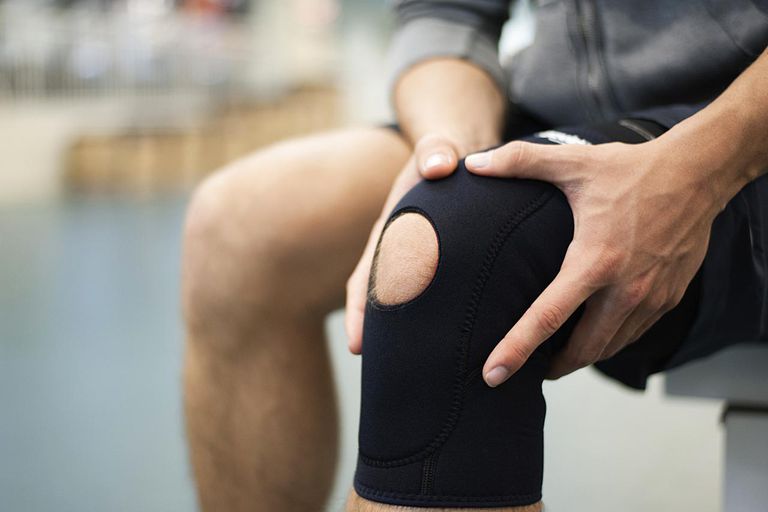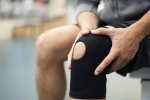
Treating Osteoarthritis Before Surgery
There’s no cure for osteoarthritis (OA) yet, but there are several treatment options and lifestyle changes that can relieve your symptoms. A combination of treatments and lifestyle changes can help:
- Alleviate symptoms
- Improve the quality of life
- A slow progression of the disease
Read on to learn about lifestyle changes and other treatments that can help relieve your OA symptoms.
Weight Loss
Achieving a healthy weight is an important part of OA management. Excess weight causes unnecessary strain on your:
- Feet
- Knees
- Hips
Losing weight can have a big impact on the damage being done to your joints. Even dropping just 1 pound of body weight may take 3 to 6 pounds of pressure off your knees.
Healthy Eating
Eating a healthier diet will help manage your weight. Eating certain foods can improve the health of your joints and reduce inflammation, too.
Research published in Arthritis and Rheumatology found that vitamin D may prevent the breakdown of cartilage. Vitamin D is found in seafood, including:
- Cod
- Sardines
- Wild salmon
These fish also contain omega-3 fatty acids, which decrease inflammation and stop the breakdown of cartilage. Vitamin C, beta-carotene, and bioflavonoids have also been linked to better joint health.
Exercise
The right types of exercise can help with OA. Exercise may improve pain and stiffness and even prevent further damage to your joints. The stronger the muscles around your knee are, the better they can absorb the shock placed on the knee when you move.
Exercise can also help you lose weight, put less stress on the knees, and ease the pain. Your doctor or physical therapist can recommend specific exercises based on your needs.
These may include strengthening exercises for your muscles and stretching and range-of-motion exercises for stiffness. Aerobic activity is recommended for those who need to lose weight.
Medication
Over-the-counter (OTC) medications like acetaminophen (Tylenol) and NSAIDs (ibuprofen, naproxen, aspirin) can help alleviate some of the pain and inflammation. Your doctor may also prescribe stronger medications.
Use caution, even when taking OTC medications. They can interact with other medications you’re taking. Always speak to your doctor before taking new medications.
Topical medications are also available. These creams and gels contain active ingredients that include:
- Salicylate
- Menthol
- Capsaicin
Using these products may relieve the pain and inflammation associated with OA because of their heating and cooling effects on the skin.
Injectable Treatments
Cortisone injections and viscosupplementation can be good options for those who aren’t getting enough relief from other nonsurgical treatments for OA of the knee.
Cortisone injected into the knee joint has been found to offer fast relief from pain and inflammation. Relief can last anywhere from a few days to several months.
Viscosupplementation works differently. Hyaluronic acid (HA) is injected into the knee joint. HA is a naturally present part of joint fluid. It lubricates the joints and helps them move freely. Most people with OA don’t have enough HA in their joint fluid.
By injecting HA into the joint, the knee benefits from extra lubrication. It decreases friction in the joint and improves the joint’s ability to absorb shock. This means less pain when you move.
Viscosupplementation has been found to provide relief to approximately 50 percent of people with OA of the knee. However, the newest guidelines from the American Academy of Orthopaedic Surgeons (AAOS) don’t recommend this for OA of the knee.
The results of cortisone injections and viscosupplementation vary from person to person.
Supplements
The OTC supplements glucosamine sulfate (GS) and chondroitin sulfate (CS) are reported to help improve symptoms of OA. Research has found that people with mild to moderate OA of the knee experienced a 20 to 25 percent reduction in pain when taking these.
However, the AAOS doesn’t recommend supplementation in their guidelines.
Talk to your doctor to see if taking supplements may be right for you.
Heat And Cold
Using heat and cold for OA of the knee have been shown to relieve symptoms. The heat from a warm pack or warm shower can help relieve pain and stiffness. Applying a cold pack or ice can decrease swelling and pain.
Occupational Therapy
An occupational therapist can work with you to minimize discomfort. They can teach you how to protect your joints when performing day-to-day activities at home and at work.
Precision Pain Care and Rehabilitation has two convenient locations in the Richmond Hill – Queens and New Hyde Park – Long Island. Call the Richmond Hill office at (718) 215-1888, or (516) 419-4480 for Long Island office, to arrange an appointment with our Interventional Pain Management Specialist, Dr. Jeffrey Chacko.













